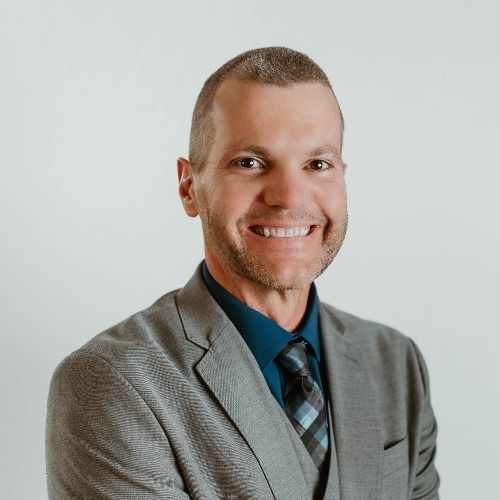The Myth of Doing It All: Why Teachers Need to Let Go of Perfection
The pervasive myth that educators can and must "do it all" is a fallacy that undermines the essence of effective teaching. In this discourse, we elucidate the detrimental effects of perfectionism and overcommitment, which often lead to teacher burnout and diminished work-life balance. It becomes imperative to recognize that the pursuit of doing everything is not a noble endeavor; rather, it is a path that depletes the joy and authenticity of the teaching experience. We assert that true teaching is not defined by the volume of tasks accomplished, but by the intentionality and heart invested in the educational journey. Ultimately, we advocate for the necessity of setting realistic expectations and establishing boundaries, thereby fostering a more sustainable and impactful teaching practice.
The conversation navigates through the intricate relationship between perfectionism and educator well-being, with Kleve urging listeners to relinquish the burdens of guilt and comparison that often plague the teaching profession. He poignantly argues that the relentless chase for perfection is not synonymous with dedication but is, in fact, a manifestation of underlying fears—fear of inadequacy and fear of disappointing others. Kleve's insights invite educators to contemplate the notion that doing less, when executed with intention and heart, can yield more profound results in the classroom. By setting boundaries and prioritizing self-care, teachers can cultivate a healthier work-life balance, ultimately enhancing their pedagogical effectiveness. This episode is an empowering ode to the notion that educators are not tasked with the impossibility of doing everything; rather, they are entrusted with the vital responsibility of making meaningful differences in their students' lives.
Takeaways:
- Teachers must recognize that striving for perfection is ultimately detrimental to their well-being and effectiveness.
- The perception that educators can handle every task is a fallacy that leads to exhaustion.
- Effective teaching is not about doing more; it is about focusing on what truly matters.
- Setting boundaries is essential for maintaining a sustainable and impactful teaching practice.
- Letting go of guilt and comparison allows teachers to concentrate on their authentic contributions to education.
- Success in teaching should be defined by the quality of relationships and the depth of learning, rather than mere productivity.
Links referenced in this episode:
Companies mentioned in this episode:
- Be a Funky Teacher
Transcript
Yeah, he's Mr. Funky.
Speaker A:He's Mr. Funky Teacher.
Speaker A:Mr. Funky Teacher inspires greatness, makes you feel good.
Speaker A:Like your favorite playlist.
Speaker A:Keeping that fresh and funky.
Speaker A:Yes, he does.
Speaker A:He got some funky cool ideas to share for all you teachers.
Speaker A:He can empower others, students and teachers.
Speaker A:It's all about hard work and creativity.
Speaker A:He brings out the kindness in everyone.
Speaker A:He's got the passion to teach.
Speaker A:You hear it when he speaks.
Speaker A:He knows how to build strong relationships.
Speaker A:If you're seeking the best bunkiest, he is it.
Speaker A:He will empower you to improve.
Speaker A:He'll be helping others and loving it, too.
Speaker A:He's Mr. Funky Teacher.
Speaker A:Yeah, he's Mr. Funky Teacher.
Speaker A:Yeah, yeah, yeah.
Speaker B:This is Mr. Funky Teacher with Be a Funky Teacher dot com.
Speaker B:I'm coming to you with another Be a Funky Teacher podcast.
Speaker B:Welcome back, everyone.
Speaker B:Today.
Speaker B:Today's episode is called the Myth of Doing It.
Speaker B:Why teachers need to let go of perfection.
Speaker B:I don't know who needs to hear this today, but let's say it out loud.
Speaker B:You can't do it all.
Speaker B:And you never were meant to do it all.
Speaker B:Somewhere along the way, teaching became a badge of exhaustion.
Speaker B:We started measuring our worth by how much we could juggle instead of how deeply we could care.
Speaker B:But here's the truth.
Speaker B:The best teachers aren't the busiest.
Speaker B:They are the most intentional, y'.
Speaker B:All.
Speaker B:So before we get into it, let's talk about three things that I'm thankful for.
Speaker B:First thing that I'm thankful for is being an educator.
Speaker B:I'm so grateful for the calling itself, for the opportunity to teach, to guide, and to keep learning alongside students.
Speaker B:Teaching isn't easy, but it's deeply meaningful.
Speaker B:And I still feel lucky to be in the work that I am here with.
Speaker B:With being an educator.
Speaker B:Second thing I'm thankful for, my classroom space.
Speaker B:It's not perfect, but some.
Speaker B:Some days it's a bit warm, right?
Speaker B:And sticky inside, as maybe your classrooms are, or maybe your classroom runs cold sometimes.
Speaker B:But here's the thing.
Speaker B:It's.
Speaker B:It's.
Speaker B:It's home base for our learning journey.
Speaker B:It's where ideas spark and students grow.
Speaker B:This space holds stories and success you can't see on a score report, y', all, right?
Speaker B:And so think about that.
Speaker B:Think about your classroom space.
Speaker B:I'm so thankful for my classroom space.
Speaker B:Even though it.
Speaker B:It's far from perfect, it's very vital to what I do.
Speaker B:Third thing I'm thankful for.
Speaker B:My dad.
Speaker B:I'm thankful for.
Speaker B:I'm thankful to.
Speaker B:For time to celebrate him and to talk with Him.
Speaker B:Every conversation feels like a reminder of where I come from and what really matters.
Speaker B:Faith, family, and purpose.
Speaker B:And actually, it was Veterans Day also, and I got to celebrate him through, thanking him for his service.
Speaker B:I love talking to him about his time in the service.
Speaker B:I know some veterans don't like talking about it.
Speaker B:He doesn't mind sharing and talking about his time in the service.
Speaker B:Right when he came out of high school, he was in the army.
Speaker B:And so we.
Speaker B:We sometimes talk about that, but I'm.
Speaker B:I'm thankful for my dad.
Speaker B:All right, shall we get into it, y'?
Speaker B:All?
Speaker B:Let's talk about perfection.
Speaker B:Let's talk about letting go.
Speaker B:Let's talk about the myth of doing it all.
Speaker B:Why teachers need to let go of perfection, y'.
Speaker B:All.
Speaker B:So let's talk about the illusion of doing it all.
Speaker B:Teachers are praised for going above and beyond, but when above and beyond becomes the standard, it no longer.
Speaker B:It's no longer praise.
Speaker B:It's pressure, y'.
Speaker B:All.
Speaker B:Doing it all sounds heroic, but quietly, it erodes joy and health of educators.
Speaker B:So you.
Speaker B:You can't teach well when you're depleted.
Speaker B:You can only sustain when you're centered.
Speaker B:You weren't hired to do everything.
Speaker B:You were hired to make a difference.
Speaker B:I'm going to say that again because it's such a powerful way of thinking, a shift in thinking, y'.
Speaker B:All.
Speaker B:You weren't hired to do everything.
Speaker B:You were.
Speaker B:You were hired to make a difference in the lives of young people.
Speaker B:Think about that.
Speaker B:So let's talk about the problem of.
Speaker B:With perfection.
Speaker B:Perfectionism masquerades as dedication, but underneath it's.
Speaker B:It's fear.
Speaker B:Fear of letting someone down.
Speaker B:Fear of not being enough.
Speaker B:See, students, they don't need perfect adults.
Speaker B:They need authentic adults.
Speaker B:Perfection says do more.
Speaker B:Purpose says do what matters.
Speaker B:So I want to encourage you to pause and reflect.
Speaker B:What if doing less actually created more space for.
Speaker B:For connection?
Speaker B:What if doing less actually created more space for.
Speaker B:For.
Speaker B:For connection with your students, with the fellow educators that you work along with, with families of students.
Speaker B:What if doing less actually created more space for that?
Speaker B:And what might be the implications of that and the impact of that?
Speaker B:See, every yes costs something.
Speaker B:Every time you say yes to another task, you say no to something else, often your peace or your.
Speaker B:Your family.
Speaker B:We say yes because we care.
Speaker B:But caring doesn't mean carrying everything.
Speaker B:When you over commit, you scatter your impact.
Speaker B:That's kind of crazy to think about.
Speaker B:Alignment beats obligation every time, y'.
Speaker B:All.
Speaker B:So I would encourage you to be careful around over committing that kind of goes back to.
Speaker B:We've talked a lot in different podcasts about setting boundaries.
Speaker B:So the comparison trap social media shows the highlight reels, not, not the late night lesson plans or the tears in the parking lot.
Speaker B:And we've all had them.
Speaker B:We've all had those tears in the parking lot and those late night lesson plannings or late night gradings or sometimes you're.
Speaker B:You're looking at something that needs to be taught and in students.
Speaker B:You know, students are going to struggle with it and you just sit there and stare at it because you're trying to figure out how the best approach to teaching it so meaningful classroom isn't, isn't a display.
Speaker B:It's a living, breathing community.
Speaker B:And joy doesn't come from doing it all.
Speaker B:It comes from doing it authentically.
Speaker B:I'm going to talk about boundaries again, because boundaries bring freedom.
Speaker B:Boundaries aren't walls that keep people out.
Speaker B:They're guardrails.
Speaker B:They're that keep you steady.
Speaker B:Leaving school on time isn't lazy.
Speaker B:It's longevity.
Speaker B:Saying no to what drains you is saying yes to what matters the most, y'.
Speaker B:All.
Speaker B:And kids don't benefit from teachers who, who are running on empty.
Speaker B:And so we have to.
Speaker B:We have to focus on redefining success, y'.
Speaker B:All.
Speaker B:Success isn't a.
Speaker B:A bulletin board display or perfect lesson plan.
Speaker B:It's the moment a student feels seen.
Speaker B:It's the apology you model, the confidence you spark, the curiosity you protect.
Speaker B:Doing less with more heart is still doing enough.
Speaker B:Impact isn't about volume, y'.
Speaker B:All.
Speaker B:It's about value.
Speaker B:And we'll talk a little about the funky perspective, y'.
Speaker B:All.
Speaker B:Being funky means owning your rhythm, your pace, your limits, your joy.
Speaker B:Funky teachers teach with soul, not speed.
Speaker B:We find our groove by not doing more, but by doing what feels true.
Speaker B:When.
Speaker B:When you stop trying to do it all, you make space to be present.
Speaker B:And that's where the magic lives.
Speaker B:So as I do a reflective closing here.
Speaker B:You can't do it all, but you can do what matters.
Speaker B:The world does not need perfect teachers.
Speaker B:I'm going to say it again because it's going to be in a test.
Speaker B:The world doesn't need perfect teachers.
Speaker B:It needs present ones.
Speaker B:So breathe, step back, and remember that enough is a beautiful place to be.
Speaker B:Let go of the guilt.
Speaker B:Let go of the comparison.
Speaker B:I've heard the phrase comparison is the thief of joy and how true that is.
Speaker B:You're not in competition with other teachers or with other people here.
Speaker B:So let go of the guilt.
Speaker B:Let go of the comparison.
Speaker B:Choose what matters most and let the rest fall away.
Speaker B:That's not quitting.
Speaker B:That's clarity.
Speaker B:And clarity is what keeps your funk alive.
Speaker B:I hope you found value in this episode.
Speaker B:If you did, jump on over to Apple Podcasts or wherever you listen to your podcast and hit me up with a five star review and let me know what you think, y'.
Speaker B:All.
Speaker B:And I want you to remember to inspire greatness in young people.
Speaker B:And don't forget to be a funky teacher.
Speaker B:Bye now.
Speaker A:He's Mr. Funky Teacher yeah, he's Mr. Funky Teacher yeah, yeah, yeah.
Speaker B:Sam.

